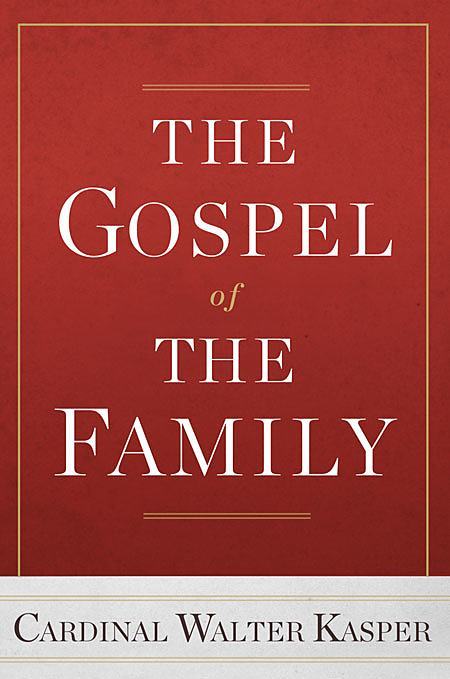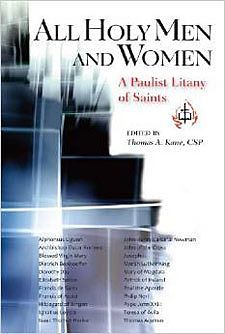June 23, 2014
The routines of September through June are shifting down a gear or two, and we look to answer those ancient questions: Have you read any good books lately? What are you currently reading?
These are always my questions to friends I know who love to read as much as I do. From the shelves of Paulist Press come some surprising answers.
It is a quick read with a lasting impression.
Shusaku Endo was one of one of Japan’s most celebrated writers who died in 1996. In these two novellas, Mr. Endo gathers into one volume two stories happening during World War II – one set in France, the other in Japan. “White Man,” which won an Akutagawa, Japan’s most prestigious literary prize, is the work that first brought Endo wide recognition.
The main character in is a French collaborator who assists the Nazi occupiers of Lyon with their interrogation and torture of a Catholic seminarian, a man he knows and whose cousin he had ruined before the war. The narrative unfolds in the voice of the collaborator in his diary, which unflinchingly documents the cruelty and sadism of human beings while still pondering the Christian desire for redemption.
“Yellow Man” is the story of a Japanese man who, though raised as a Christian, maintains a distressing wartime liaison with his best friend’s fiancée. Exhausted by the war and slowly dying from tuberculosis, he discovers that his commitment to an alien “white” God has never been more than superficial.
Mr. Endo’s novellas intertwine most clearly in this character and the persecuted French missionary whose relationship to God is deeply sincere in contrast to the experience of a man who discovers his indifference God to that of one who discovers that he has no choice: he must either be faithful or die. Together, these novellas do more than paint a portrait of life on two continents in the waning days of the war. They also address the fundamental question: What is the meaning of Christianity for East and West alike?
Pain and suffering have been universal human experiences since our beginning. All religions ask, in one way or another, where suffering comes from, why it exists, and what it means. They ask where we can find the strength to endure. They ask for deliverance from it.
In “Mercy,” the important new book praised by Pope Francis, Cardinal Walter Kasper examines God’s mercy while holding these devastating facts and questions in hand. He looks at empathy and compassion as a starting point for theological reflection on the topic. He continues by reflecting upon the following: What does it mean to believe in a merciful God? How are divine mercy and divine justice related? How can we speak of a sympathetic – that is, a compassionate – God? Can undeserved woe and divine mercy be brought into harmony with one another? He likewise seeks to address the ethical questions that similarly arise: How can we measure up to the standard of divine mercy in our own actions? What does the message of mercy mean for the practice of the church and how can we cause the central message of God’s mercy to shine in the life of Christians and the church? What does this message mean for a new culture of mercy in our society?
Cardinal Kasper, in an address to the consistory published in English exclusively by Paulist Press, advocates a stronger appreciation of marriage and the family – even on sensitive issues such as divorce and remarriage. And the importance of this title is that the questions brought up in this text are subjects for the October 2014 synod, so don’t be left behind in regards to the background of this important event.
The mission of preaching the Gospel to all creation, entrusted directly by the Lord to his disciples, has continued in the Church throughout history are among the important issues to be addressed during the October synod This from the Vatican website regarding the October synod, according to the Vatican Web site. The social and spiritual crisis, so evident in today’s world, is becoming a pastoral challenge in the Church’s evangelizing mission concerning the family, the vital building-block of society and the ecclesial community. Never before has proclaiming the Gospel on the Family in this context been more urgent and necessary. The importance of the subject is reflected in the fact that the Holy Father has decided to call for a Synod of Bishops, which is to have a two-staged itinerary: firstly, an Extraordinary General Assembly in 2014, intended to define the status quaestionis and to collect the bishops’ experiences and proposals in proclaiming and living the Gospel of the Family in a credible manner; and secondly, an Ordinary General Assembly in 2015 to seek working guidelines in the pastoral care of the person and the family.
Concerns which were unheard of until a few years ago have arisen today as a result of different situations, from the widespread practice of cohabitation – which does not lead to marriage and sometimes even excludes the idea of it – to same-sex unions between persons, who are often permitted to adopt children. The many new situations requiring the Church’s attention and pastoral care include: mixed or inter-religious marriages; the single-parent family; polygamy; marriages with the consequent problem of a dowry, sometimes understood as the purchase price of the woman; the caste system; a culture of non-commitment and a presumption that the marriage bond can be temporary; forms of feminism hostile to the Church; migration and the reformulation of the very concept of the family; relativist pluralism in the conception of marriage; the influence of the media on popular culture in its understanding of marriage and family life; underlying trends of thought in legislative proposals which devalue the idea of permanence and faithfulness in the marriage covenant; an increase in the practice of surrogate motherhood (wombs for hire); and new interpretations of what is considered a human right.
This terrific book offers brief biographies of holy men and women who are special to the Paulist Fathers, accompanied by a prayer and a simple line drawing. Saints and authors include: Elizabeth Ann Seton by Colleen Griffith; Francis de Sales by Father Lewis S. Fiorelli, OSFS; Paul the Apostle by Father Frank DeSiano, CSP; Martin Luther King, Jr. by Father Bruce Nieli, CSP; Thomas Aquinas by Dominic Doyle; Patrick of Ireland by John Collins, CSP; Joseph, husband of Mary by Father Michael McGarry, CSP; Pope John XXIII by Diane Apostolos Cappadona; Mary of Magdala by Mary Rose D Angelo; Ignatius Loyola by Father J. Randall Sachs, SJ; Alphonsus Liguori by Father James A. Wallace, CSSR; Mary of Nazareth By Sister Margaret Guider, OSF; Francis of Assisi by Father James F. Puglisi, SA; John Henry Cardinal Newman by Father Paul G. Robichaud, CSP; Teresa of Avila by Catherine Mooney; Isaac Jogues by Paula Cuozzo; Dorothy Day by Brett Hoover; Hildegard of Bingen by Francine Cardman; Our Lady of Guadalupe by Nancy Pineda-Madrid; John of the Cross by Thomas P. Ryan, CSP; and Father Isaac Thomas Hecker by Father Ronald A. Franco, CSP.
All of these books are available at paulistpress.com.




